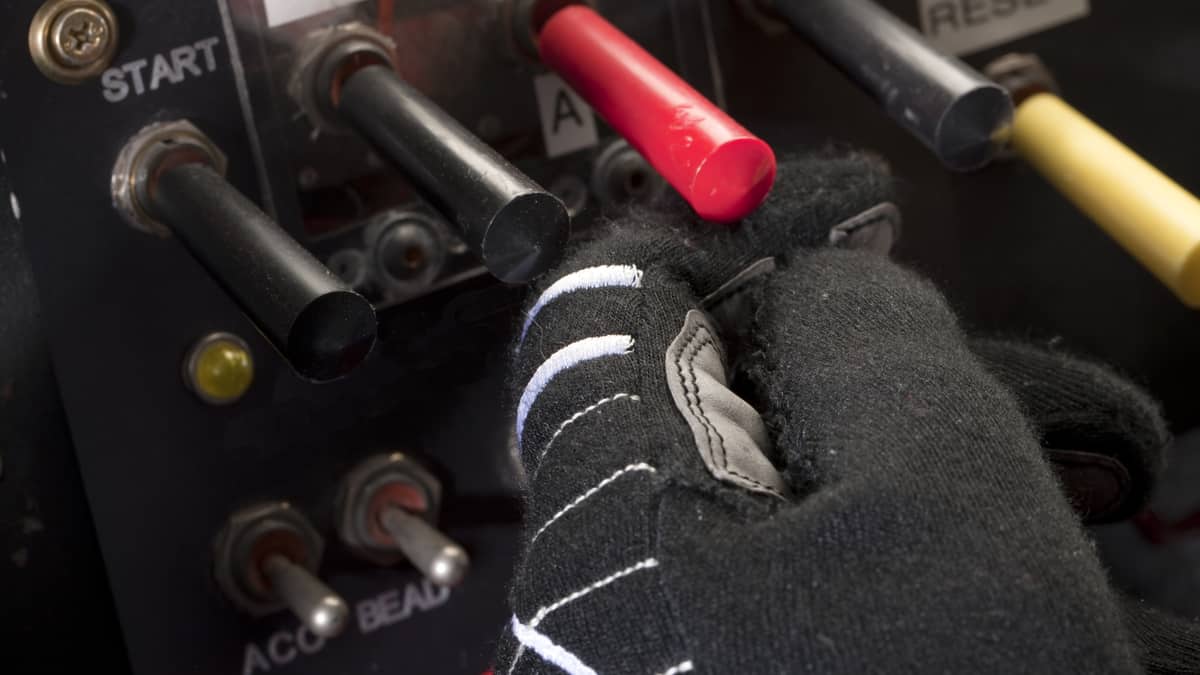There comes a time when it makes sense to change careers. With the ability to make around $50,000 a year as an automotive mechanic, you might be considering working on cars full-time. Learning how to become a mechanic is the first step in the journey that will require some time and money.
In this guide, we go through the seven steps that get you to a new automotive mechanic career. We also discuss the differences between the automotive technician vs. mechanic. We also examine how long it will take to become a mechanic and evaluate the different jobs you can perform. Once you get to the end of this article, you will have answers to the top questions you’ve asked.
How to Become a Mechanic
To become a mechanic, you want to do plenty of research before you jump into a career change. You will also need a high school education and some automotive training. After that, you want to get certifications and start at an entry-level position.
Finally, you are ready to get a long-term job and continue advancing up the career path. Here are some more detailed steps on how to become a mechanic:
1. Perform Research

To become a successful mechanic, you need to devote some time to performing research. There’s a lot more to becoming a mechanic than you might initially think. This job is extremely demanding on the body and could require long hours.
Before you start, it helps to tinker around on some cars to see if you even enjoy the profession. Read through the service manuals on some cars to see if you have general knowledge about vehicles. If you have a little bit of experience ahead of time, you will find the rest of the steps easier.
You can also help out at a local shop to see how much you like it. While you won’t be able to work on vehicles as a mechanic, you could help out with smaller tasks and get a feel for how things run in a shop. Before you invest any time or cash into continuing education, you can determine if this is truly something you want to pursue.
2. Complete High School Education
Before you take any training classes, you will probably need your high school diploma or a GED. Employers want to know that you have basic skills in science, math and reading.
If you didn’t make it through high school, you can usually get your GED without much effort. On average, these state tests only cost around $100.
3. Take Mechanic Training Classes

There are multiple options available to you if you want to take an automotive education. Here are a few options to consider:
- Dedicated mechanic training program
- Military
- Trade or vocational school
- Community college
The options offer differing types of diplomas or certifications, so do your research ahead of time. There are some that will cost more than others, as well.
4. Get Certification
It’s the responsibility of The National Institute for Automotive Service Excellence (ASE) to provide testing for automotive technicians. With these tests, you demonstrate the ability to handle the regular automotive tasks that a mechanic will face. Some training programs are specifically designed to get you ready for this test.
To achieve ASE entry-level certification, you will need to take eight tests, requiring you to answer questions about the steering, suspension, air conditioning system, engine repair, brakes, electrical systems and more.
We recommend taking some practice tests to learn how it is formatted and to get a feel for what’s on it. You can also take the entry-level test whenever you are ready, but it’s not as easy as you might think. For this reason, most people wait until after all of the education has been completed.
5. Start Entry-Level Position
Once you get your initial certification, you will need to get some job experience under your belt. To do this, you can choose an entry-level position that pays close to minimum wage. These jobs are often offered at lube shops and service stations.
There’s also the option to choose an internship or apprenticeship if you can go a short time without making money. These positions are offered at better repair shops, such as dealerships. Plus, you don’t normally have to intern long before you are offered a paid position. It’s only temporary until you can prove yourself to be worthy.
6. Choose Long-Term Job
Once you get the experience needed, you are ready to take on a good job. Long gone are the days when you have to do oil changes and tire rotations all day long. After you spend a year or two in the shop, you are ready to take on larger tasks.
Dealerships will move you up based on how well you perform. They will also expect you to continue getting more certifications, which further improve your salary.
7. Continue Learning
After two years of education and experience, you are permitted to take the ASE test that allows you to become a Certified Professional Technician. This label shows that you have more experience than the entry-level technician, giving you better opportunities.
Depending on how good you get, you can also take the tests to become a Master Technician. It’s important to remain up-to-date on certifications and to continue growing. Ask your employer if they will send you to local conventions and automaker events, so you can keep up with the changes that are happening so quickly.
Difference Between an Automotive Technician vs. Mechanic

There are many similarities between the two titles. For example, you will need to follow the same path to get a job as either one. It’s important to know about cars either way.
The main difference is what job is performed. Typically, the mechanic is going to spend most of the time performing maintenance and repairs. The mechanic will also perform the majority of inspections. Mechanics can work on a variety of cars, from the sporty coupe to light trucks and SUVs.
On the other hand, the automotive technician is going to take work a step further, focusing more on diagnostics and electrical systems. The technician is a troubleshooter looking to develop skills that involve figuring out problems.
How Long Does It Take to Become an Automotive Mechanic?
From start to finish, you are going to spend anywhere from two to four years until you are ready for your best job. Between the research you need to perform, the training required and the tests you must take, your time will depend on how quickly you want to move through the process.
Don’t forget that you will need to work a few years before you can get your professional certification. However, once you’ve gotten to this stage, you’ve done pretty much everything required to create a rewarding career as a mechanic.
Other Jobs for Automotive Mechanics
1. Customer Service
You don’t have to stay stuck as a mechanic once you have your certifications. You can work in other parts of the dealership or shop and will be well-versed in how to answer customer questions. Consider the benefits of working in customer service.
You will be responsible for greeting customers and helping them get problems solved. If your communication skills are excellent, you might prefer this path over working on the cars because technicians rarely get to interact with customers.
2. Parts
Most dealerships also have a parts department. It’s helpful if the team working in parts understands how a car works and the components that are needed.
You will be able to direct customers appropriately, especially if they want to perform their own repairs. You will also serve as a resource to mechanics that need to order parts.
3. Sales
There are countless salespeople starting their careers as mechanics. With the knowledge that’s gained, it becomes easy to transition to the sales department.
With great customer service skills and a superior personality, you may find yourself earning quite the commission. While this job isn’t for everyone, you could earn more than you did as a mechanic.
4. Dealership Management
Once you’ve worked your way through the rest of the dealership, you may be able to take a management position. You will work through being the shop foreman or a service advisor. From here, you can infiltrate the management team.
To get a head start on this path, talk to the dealership about what they would like to see from you to move up. Then, diligently start working on these to-dos to move ahead faster than the competition.
5. Training Instructor
There are so many teaching opportunities available to mechanics. With your certifications, you have a world of careers open to you. The teachers at vocational high school programs and community colleges have certifications.
You can also bring the work home with you and start some online training courses. Have you ever considered teaching repairs on YouTube? It could be a real career that’s exceptionally lucrative.
Is Becoming a Mechanic Hard?
It can be time-consuming to become a mechanic, but the training isn’t difficult if you understand vehicles. The hardest part can be finding an employer willing to give you that first job needed to put your foot in the door. If you are willing to be an intern or apprentice, you can get into better establishments.
Can You Make Good Money as a Car Mechanic?
Entry-level mechanics don’t normally make more than $50,000 a year. However, if you become a Certified Master Technician, you can make $100,000 or more. However, it takes a lot of work to make this kind of money and you may need to start your own business if you want a job you can be proud of.
How Do I Get Started as a Mechanic?
You want to start by doing some research. You will also need your high school diploma or a GED to enter into a training program. Once you’ve taken your ASE Entry-Level Certifications, you are ready to start your first job, where you will gain invaluable knowledge and experience.
Is There a Lot of Math in Being a Mechanic?
If you aren’t good at basic math, you may have trouble being a mechanic. The tools you use and the jobs that must be performed often require figuring out measurements and fractions. You also want to be able to quickly convert imperial and metric units, depending on the jobs you are performing.
So now you should have the knowledge of how to become a mechanic. While this job is not for everyone due to the heavy work, many find it very enjoyable and you will never be bored.
Once you know how to become a mechanic, you are ready to set out on this new career journey. Fill yourself with the knowledge needed to diagnose and repair cars and you shouldn’t have any trouble finding a rewarding job that lets you do what you love.
Learn more:
- Mechanic Labor Rates Per Hour
- 10 Best Tool Brands for Mechanics
- Ask A Mechanic: Car Questions Answered
Categories: Guides










